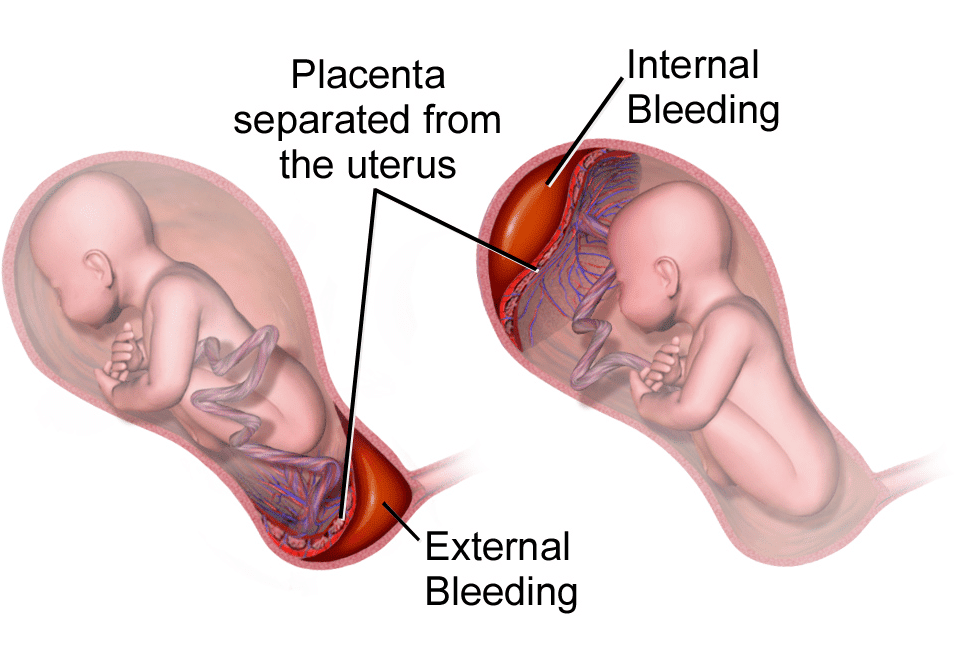What is placenta abruption?
This is a serious condition where the placenta prematurely separates from the uterus. It occurs more commonly in the third trimester. It can be potentially life-threatening as it can cut off the blood supply and oxygen to the baby and result in heavy bleeding for the mother.
Why has placenta abruption happened?
In many cases, the cause cannot be found. Some risk factors include:
- Placenta abruption in previous pregnancy
- Pregnancy-induced hypertension/ pre-eclampsia or pre-existing hypertension
- Abdominal trauma e.g. falls or road traffic accidents
- Smoking or cocaine use
- Early rupture of membranes e.g. preterm premature rupture of membranes (PPROM)
- Infection inside the uterus
- Older mother
What are the symptoms of placenta abruption?
- Vaginal bleeding (this may not occur all the time, as bleeding can be trapped inside the uterus)
- Abdominal pain
- Uterine pain: this is constant, unlike contractions that come and go
Symptoms can occur suddenly (acute), or slowly over time (chronic).
If you think you may be having placental abruption, contact your gynaecologist immediately.
What are the risks of placenta abruption?
Placenta abruption is an emergency due to potential life-threatening effects on both mother and child.
Mother
- Heavy blood loss and shock
- Blood clotting problems
- Organ failure from excessive blood loss
Baby
- Premature birth
- Growth restriction/small baby
- Insufficient oxygen, which may result in brain damage or death (stillbirth)
How is placenta abruption treated?
Depending on the situation, you may require:
- Emergency delivery: if vaginal delivery is not imminent, this will have to be via C-section (even if baby is premature)
- Blood transfusion: due to excessive blood loss
- Medications: To contract the uterus and minimise bleeding
- Hysterectomy: if life-threatening bleeding cannot be controlled
- High-dependency or intensive care monitoring
- Regular blood tests: to check your blood count and for other organ functions
- Regular ultrasound scans: to check on baby’s growth and well-being (if abruption is chronic i.e. occurring slowly over time and baby is still premature)
I’ve had placenta abruption in my previous pregnancy. Will it happen again in my next pregnancy?
You do have an increased risk of having placenta abruption in your subsequent pregnancies – if there was a known cause e.g. smoking or hypertension, you should control these to reduce your risk. Do speak with your gynaecologist for advice.
Photo credit: Blausen.com staff (2014). "Medical gallery of Blausen Medical 2014". WikiJournal of Medicine 1 (2). DOI:10.15347/wjm/2014.010. ISSN 2002-4436.
